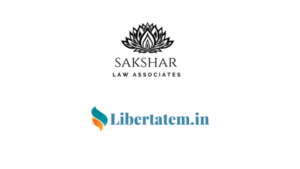Introduction
The concept of white-collar crimes refers to a wide range of illegal acts committed by respectable people in various businesses establishing as part of their occupational roles. These kinds of crimes usually occur in large and complex organizations. It refers to the wrong or crime committed by the elites people belonging to a higher class of society during their occupation. So, it can also be called as the crime of educated and professional elites. In Indian society, there are numerous types of white-collar crime, ranging from finance, management, law, engineering, medicine, offences to environmental violations, and health care frauds on individuals, communities, and society in general.
There are more or less complexity and uncertainty in such crimes which is not noticeable like other offences. It is difficult to identify the victims, and victims are unaware of victimization. So, a certain profession offers beneficial opportunities for criminal acts and corrupt and immoral practices that hardly attract public attention. They are inclined to corrupt and dishonest practices because of their neglect at social and educational institutions, their greediness, profit-making mania, or want to reach on top by a short cut. These deviants have negligible regard for honesty and other ethical values. Hence, they carry on their illegal activities with impunity without fear of loss of prestige or status. The crimes of this nature are called, “White Collar Crimes”.
Historical Background
The well-known definition of white-collar crime was firstly coined by the eminent American sociologist Edwin H. Sutherland in the late 1930s. Sutherland as criminologists thought that wrong or crime was concentrated among the urban and argued that the “respectable people from the upper social classes committed a great deal of harmful criminal acts in the course of their occupations and the furtherance of their economic and business interests.” According to Sutherland (1949), “upper-class criminality was ignored by the government and the general public because the perpetrators did not fit the common stereotype of the criminals.” Offender based approach to defining white-collar crime emphasize as a crucial characteristic of white-collar crime the high social status, power, and respectability of the actor. The most well-known offence-based definition was proposed by Herbert Edelhertz in 1970. Edelhertz defined white-collar crime as “an illegal act or series of illegal acts committed by nonphysical means and by concealment or guile to obtain money or property, to avoid the payment or loss of money or property, or to obtain business or personal advantage”. The offence-based definition distinguishes white-collar crimes from other types of crime in the manner as they are committed rather than the characteristics of the person who commits them. White-collar crime highlights concerning a person who in the course of his or her occupation, utilizes respectability and high social status to perpetrate an offence.
Who is the white-collar criminal?
In 1989 Croall in his book stated: “White-collar criminals have traditionally associated with high status and respectable offenders: the ‘crimes of the powerful’ and corporate crime.” A white-collar offence reveals that offenders were typically small businesses, employees, and those more properly described as ‘criminal businesses’. This could be attributed to the ‘immunity’ of the corporate offender from prosecution. Croall argued that “such patterns of offending reflect not only enforcement policies but also wider structural and market factors.” Therefore white-collar criminals are concentrated on the corporate offender and makeover simplistic distinctions between ‘corporate’ and other varieties of white-collar offending. White Collar Crimes are mostly economic offences are broadly categorized in certain classes like banking & allied fields such as commercial, chit fund & insurance frauds tax & duty evasion smuggling, violation of Industrial, labour, and environmental regulation, black marketing, adulteration of food drugs, and hawala & other Benami transactions. The crimes are also seen in drug trafficking and money laundering activities, bribery, and other corrupt practices. Government officials are frequently reported to be engaged in many such crimes like bank scans, fraud & computer-generated crimes, counterfeiting coins & currency, black money, and misappropriation of government funds are the most frequently reported cases in India.
White-collar criminal includes the following attributes
- The person has high social status and considerable influence, enjoying respect and trust, and belongs to the elite in society. The elite have generally more knowledge, money, and prestige, and occupy higher positions than other individuals in the population occupied. Elite members are active in business, public administration, politics, congregations, and many other sectors in society.
- The person exploits his or her position to commit financial crime. The person does not look at himself or herself as a criminal, but rather as a community builder who applies personal rules for his or her behaviour. The person may be in a position that makes the police reluctant to initiate a criminal investigation.
- The person has access to resources that enable the involvement of top defence attorneys and can behave in court in a manner that creates sympathy among the public, partly because the defendant belongs to the upper class, often a similar class to that of the judge, the prosecutor, and the attorney.
Legal Profession & White Collar Crime
The Industrial Revolution played a magnificent role to develop white-collar crimes in India. The modern free enterprise gave rise to critical legal intricacies pertaining to property rights and diverse legal matters that paved the method for the birth of a replacement category of professionals of advocates who within the name of providing justice started abetting within the wrong and thereby pursued their slender interest. The modern legal professionals started disregarding the righteous oath of serving the society and commenced trying to find the legal loopholes and concentrated in the main in serving to out the wealthy entrepreneurs to grow richer. The white-collar crimes committed by these legal practitioners exclusively reaching in finding out illegal ways of tax-evasion. There are unethical practices like fabricating false evidence, participating skilled witnesses, thereby violating moral standards of the legal profession and dilatory techniques in collusion with the ministerial workers of the courts.
Medical Profession & White Collar Crime
White-collar crimes in India are so widespread in different professions like medical practitioners, engineers, businessmen, politicians, and therefore the list goes on. The issuance of false certificates, carrying out illicit abortions, merchandising out sample medicine, and drugs, even in some cases adulterated medicine and medicines to the patients are usually done by medical practitioners.
White-Collar Crime in Educational Institutions & Corporate Firms
White-collar crimes are practised in day to day life by certain professionals within the course of their profession like educational institutions do are available in the league to operate with freedom. A nastier role is played by the private institutions that are least bothered in providing the education, however, only concentrate on creating a business at the price of a child’s future. In India, whenever any major scandal involves the media focus, a thorough investigation continuously finds an unlawful involvement of political parties in it. So far because the businessmen are involved, their acts of white-collar crimes go beyond count. They’re termed because the company criminals who often, are involved in felonious contracts, combination, and conspiracies of trade restraints, unfair labor practices, merchandising of adulterated foods and medicines, bribing of public officers so on and so forth. They cash in of the company veil and indulged during several crimes.
Anti White Collar Legislation in India
The enactment of the prevention of corruption commission, 1963 established the Central Vigilance Commission in 1964. The Central Vigilance Commissioner was vested with considerable autonomy and legal authority to consolidate the anti-corruption work performed by the various Ministries of the Union government. The two main tasks of the CVC were: prevention of corruption and maintenance of integrity; and ensuring just and fair exercise of administrative powers vested in various authorities by statutory rules or by non-statutory executive orders. The CVC vested with the power to inquire into and investigate complaints against acts or omissions, decisions or recommendations, or administrative procedures or practices because they are wrong or contrary to law or unreasonable, unjust, or improperly discriminatory per the rule of law. The Government established the Central Bureau of Investigation (CBI) in 1963 to investigate the cases of bribery and corruption, as well as violations of central fiscal.
The Parliament enacted various other acts like The Anti-Corruption Laws (Amendment) Act, 1967, The Benami transactions (Prohibition) Act, 1988, The Consecration of Foreign Exchange and prevention of smuggling Activities Act, 1998, The Foreign Exchange Management Act 1999, Prevention of Money Laundering Act,2002, The Prevention of Corruption Act, (Samvat) 2006, The Right To Information Act 2005 to curb white-collar crimes and to punish the culprits.
The Prevention of Corruption (Amendment) Act, 2018
This act was passed to enhance the transparency and accountability of the government. The act introduces the offence of giving a bribe as a direct offence. However, a person who is compelled to give a bribe will not be charged with the offence, if he reports the matter to law enforcement authorities within seven days. The Bill makes specific provisions related to giving a bribe to a public servant and giving a bribe by a commercial organization. The act redefines criminal misconduct to only cover misappropriation of property and possession of disproportionate assets. It does not cover circumstances where the public official:
- uses illegal means, or abuses his position,
- disregards public interest and obtains a valuable thing or reward for himself or another person.
The act modifies the definitions and penalties for offences related to taking a bribe, being a habitual offender, and abetting an offence. It introduces the powers and procedures for the attachment and forfeiture of property of public servants accused of corruption. The act adds the provision for prior sanction to prosecute former officials. The act only provided for the prior sanction to prosecute serving public officials. It deletes the provision that protects a bribe giver from prosecution, for any statement made by him during a corruption trial. This may prevent bribe givers from appearing as witnesses in court. Under the Act, the punishment for corruption was “a minimum of 6 years, which was extendable up to 3 years fine”. This has been enhanced to a minimum of 3 years, which is expandable up to 7 years with fine, which can go up to 10 years for a repeat offender”.
Conclusion
The phrase “white-collar crime” has not been defined in the code. The dimensions of white-collar crime are so wide that after analyzing the provisions of IPC 1860, we may conclude that certain offence under Indian Penal Code is closely linked with white-collar crimes such as bribery, corruption, and adulteration of food, forgery, etc. The provisions of the Indian Penal Code dealing with white-collar crimes should be amended to enhance punishment particularly fine in tune with changed socioeconomic conditions White collar crimes are the crimes that cause harm to the economy of the country as a whole. It threatens the country’s economy by bank fraud, economic thefts, evasion of tax, etc. It not only affects the financial status of a country or a person but has also a negative impact on society. Punishment regarding White collar crime should be stricter as harsh punishment can prevent these crimes to a great extent. People are not aware of most of these crimes so public awareness through any communication medium is also necessary. The government should impose strict regulations regarding economic thefts in the country.
Authored by: Advocate Sakshi Shairwal, Head, Sakshar Law Associates and Mr Aniket Dwivedi (Intern)

Libertatem.in is now on Telegram. Follow us for regular legal updates and judgments from the court. Follow us on Google News, Instagram, LinkedIn, Facebook & Twitter. You can also subscribe to our Weekly Email Updates. You can also contribute stories like this and help us spread awareness for a better society. Submit Your Post Now.


